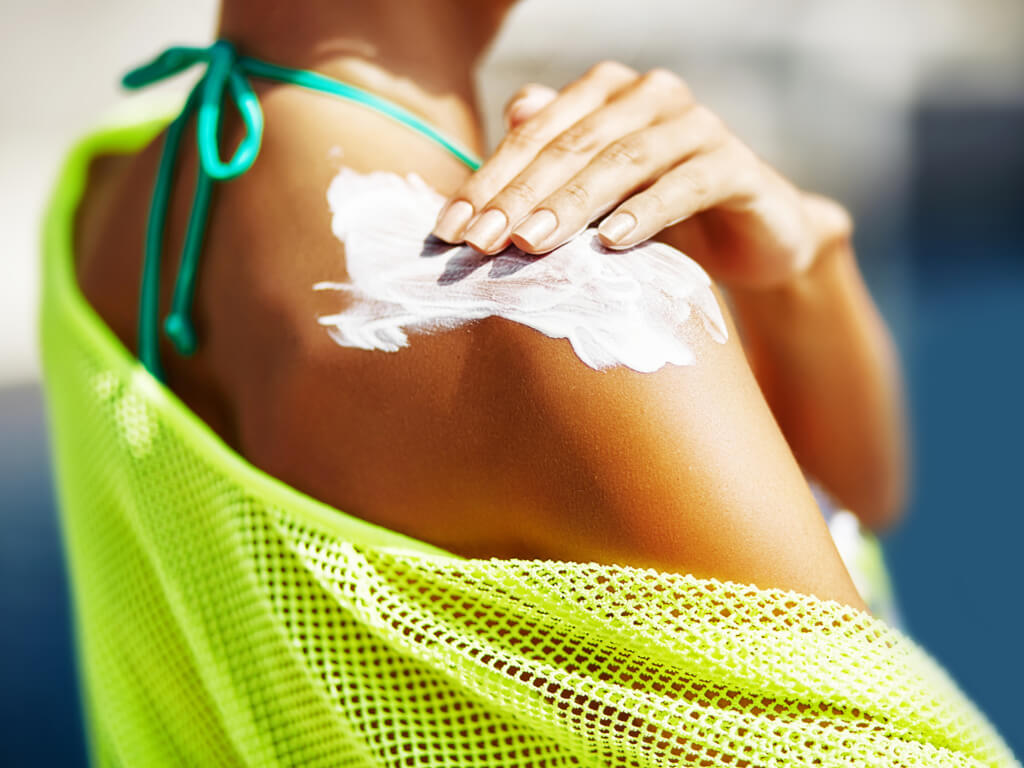Sunscreen should not just be used when you go to the beach or to the pool. In fact, you should use sunscreen every day. You might be thinking, “but that’s a lot of sunscreen!” or “but what if I’m inside most of the time?” or “does that mean I have to use sunscreen in the winter?” Or you might be asking, “What happens if I don’t use sunscreen every day?”
When we say you should wear sunscreen every day, it’s mostly just for your face and neck, since that’s what’s exposed to the sun during the day while you’re out and about.
This month we’ll go over the importance of wearing sunscreen every day, the problems caused by sun exposure and how you can find the best sunscreen for your skin.
Why Should I Wear Sunscreen Every Day?
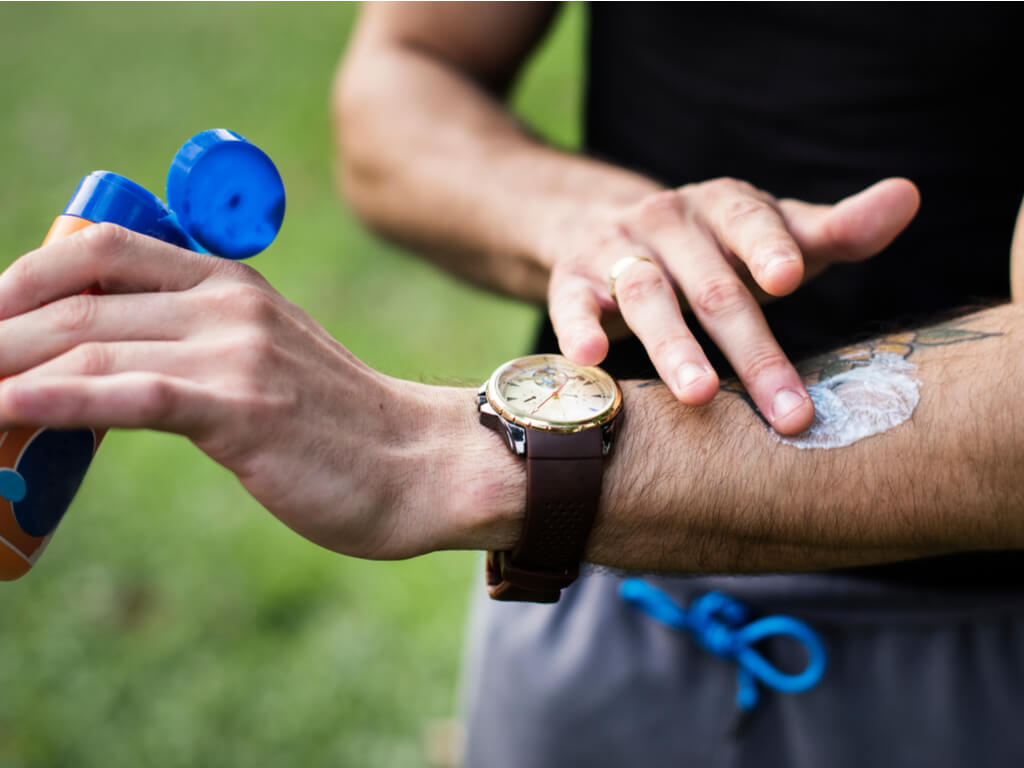
The sun is a constant source of light and heat for the Earth. However, the sun’s rays carry ultraviolet (UV) rays that damage our skin on a daily basis.
Within the sun’s ultraviolet rays are ultraviolet A (UVA) rays and ultraviolet B (UVB) rays. These rays are two different wavelengths of light that penetrate different layers of skin and cause damage over time. UVA rays penetrate the deeper layers of the skin, including the dermis and hypodermis. The damage to these layers of the skin cause wrinkles and lines to form, reduce skin elasticity and cause dermal volume loss.
On the other hand, UVB rays only penetrate the outermost layer of the skin–the epidermis. These rays interact with the cells that produce and regulate the pigment of your skin. UVB rays also cause sunburns and damage your skin’s dna cells–making it the leading cause of skin cancer.
On the flip side, getting in your daily dose of sunlight is an important part of maintaining your health. The sun’s rays stimulate vitamin D production, which is essential for reducing depression, strengthening your bones and boosting your immune system. You only need about 10-15 minutes 3 or 4 times per week to maintain healthy vitamin D levels.
Where Should I Use Sunscreen?

Because the sun shines every day of the year, even when blocked by clouds, your skin is exposed to UV radiation any time you’re outside. However, that doesn’t mean you have to cover your entire body in sunscreen just to stay safe. You just need to apply a protective layer to your exposed skin if you plan to be outside for more than 15 minutes.
If you live in Tennessee or a state with a mild climate, you only need to worry about sunscreen from the spring through the fall. But, if you live in a warmer and sunnier climate like Southern California or Florida, you should still use sunscreen every day.
Remember to apply sunscreen to the back of your neck, the tips of your ears, your face, your neck, your upper chest, your hands and however much of your arms are exposed.
What Happens if You Don’t Use Sunscreen?
The main consequence of not wearing sunscreen is putting yourself and your skin at risk for sun damage, sunburns and skin cancer. Of course, if you don’t use sunscreen your skin will begin producing more melanin to help protect itself from UV light. As the protein that gives your skin its color, not using sunscreen can help you look more tan. However, it will also cause more moles and freckles to form on your skin, depending on your genetics.
Risking sun exposure also increases your risk for developing premature fine lines and wrinkles, spider veins and signs of premature aging. As a side note, when you use sunscreen, your skin can actually begin to repair itself and reverse signs of aging. So, in a way, sunscreen is the best anti-aging product you can use.
Does Sun Exposure Cause Skin Cancer?
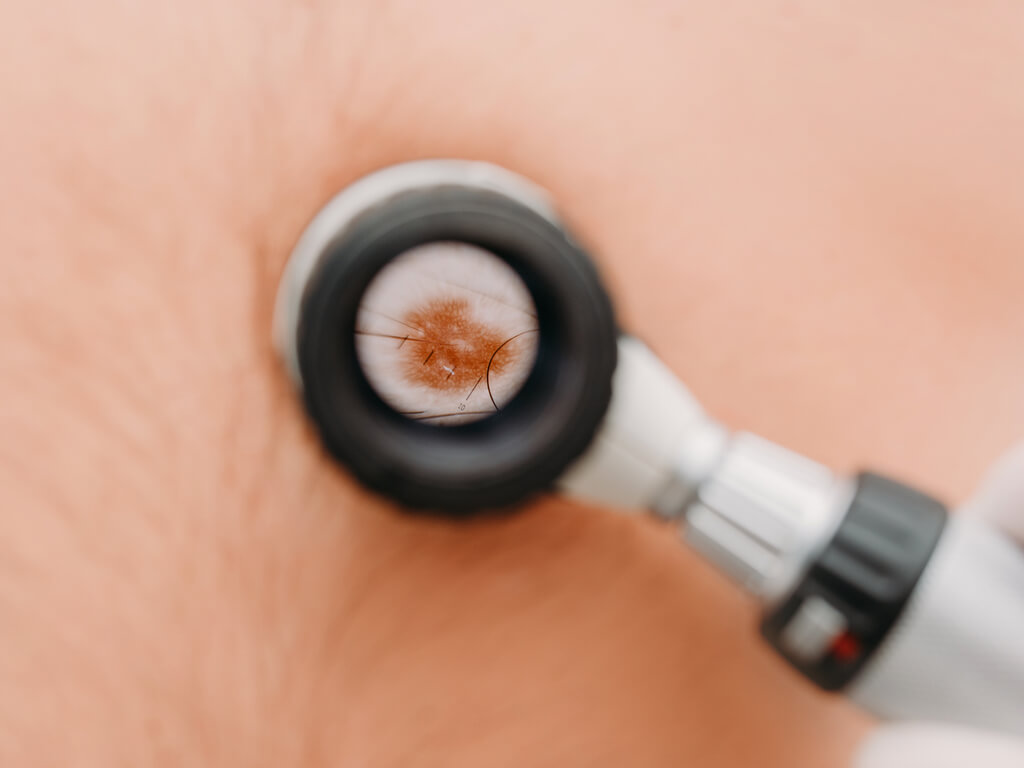
The foundational cause of skin cancer is the mutation of your skin’s DNA that causes skin cells to grow at an unregulated rate. The damage to your skin’s DNA comes from exposure to both UVA and UVB radiation. Long story short…yes, sun exposure does cause skin cancer.
However, one day without sunscreen won’t give you skin cancer right away. Your body has natural defenses to repair and defend against genetic mutations. But, as you age, your body’s defenses become weaker.
Repeated sunburns and unprotected exposure to the sun will cause more damage to your skin’s DNA. As a result, your risk of developing skin cancer increases dramatically.
What Kind of Sunscreen Should I Use?
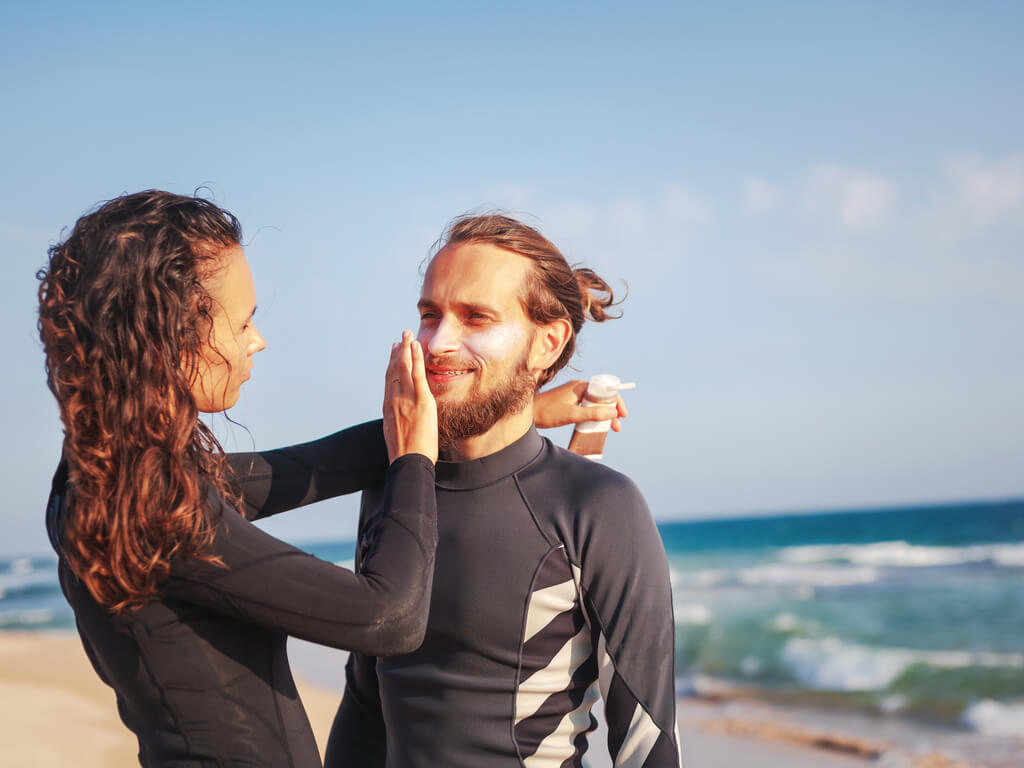
First, you should know that there are two types of sunscreen. One uses zinc oxide, titanium dioxide and other minerals to block and reflect the sun’s rays. The other uses chemicals to absorb UV light. Within these two types of sunscreen are varying sun protection factors (SPF).
Mineral Sunscreen
These lotions create a physical barrier between your skin and the sun. Mineral sunscreens are formulated with natural ingredients but can take more time to rub into your skin. Additionally, mineral sunscreens tend to be more expensive than chemical sunscreens.
Chemical Sunscreen
Chemical formulations are affordable and easy to apply. If you use a spray-on sunscreen while you’re at the beach, remember to give your skin an extra coat to ensure it’s protected. Remember to follow the instructions on the product label to give your sunscreen enough time to absorb into your skin.
What SPF Sunscreen Should I Use?

Any SPF is better than none. In fact, the SPF should be the most important factor when choosing a sunscreen product. If you find out that a chemical formula sunscreen doesn’t work for your skin, try a physical sunscreen. Just find what works best for you and stick with it.
Now, in terms of SPF numbers, you don’t really need an SPF that’s any higher than 50. Even an SPF 30 sunscreen will provide adequate protection for daily activities and help you prevent skin cancer.
Will My Sunscreen Protect Me from All UV Light?
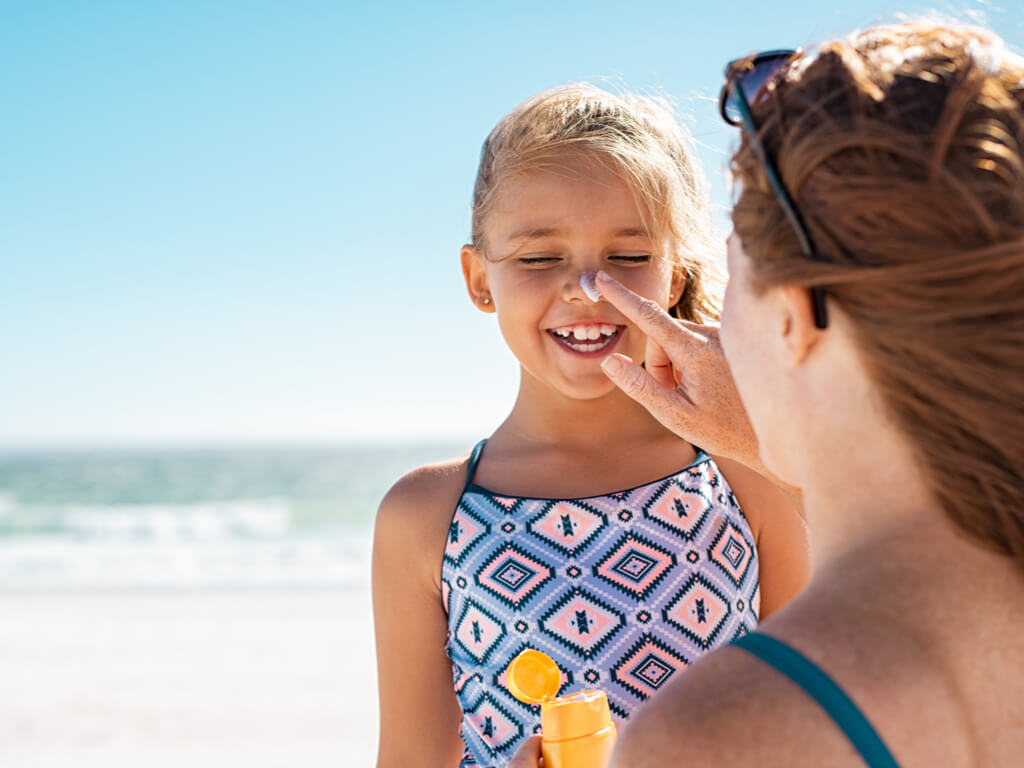
According to the FDA, most sunscreens have been tested with methods that only measure UVB rays. However, the FDA has also approved broad spectrum sunscreens that block both UVA and UVB rays.
If you want to have the most protection possible, which won’t hurt in the long run, look for broad spectrum sunscreens.
Sunscreen Vs Sunblock
Sunblock is actually just another name for physical sunscreen. Sunscreen, by definition, is a chemical compound product that absorbs UV light to protect your skin.
Should You Use Sunscreen Inside?
Many people work office jobs that limit their exposure to the sun. But if you have a window office, does that mean you’re exposed to the sun all day? Thankfully, most windows in American buildings are resistant to UVB radiation. Additionally, most car windows are also designed to minimize UVB exposure.
If you want to stay safe from UVA radiation though, you will still need to use sunscreen.
Should You Use Sunscreen in The Winter?
Even though winter brings colder temperatures, shorter days and lots of overcast skies, that won’t stop the sun’s UV rays from reaching the Earth, or your skin. So, yes. You should still use sunscreen or other sun protection in the winter whenever you’re outside.
Are Tanning Beds Bad For Your Skin?
Tanning beds can help you get a beautiful tan outside of the summer months. However, they still use UV radiation. The more you use a tanning bed and the more these UV rays penetrate the skin, the more damage you’re doing to your skin.
How Can I Spot Early Signs of Skin Cancer?
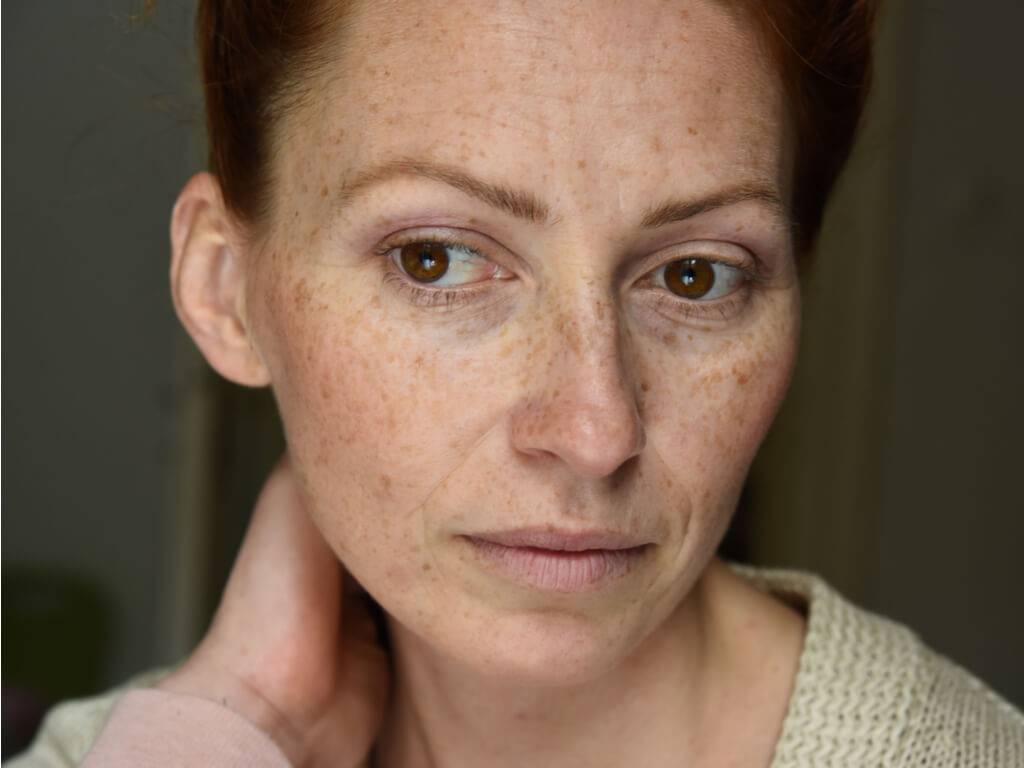
The early signs of skin cancer will generally appear as a mole with an irregular shape, size, border or color. The earlier you can get a precancerous mole evaluated by an experienced dermatology professional–the better.
Online Dermatology TN Appointments with Tennessee Telederm
Do you have a mole, sunspot, or other sun damage you’re worried about? Skip waiting for an in-office appointment and enjoy the convenience of our telehealth dermatology appointments. Visit the Get Started page to set up your account and create an appointment.


